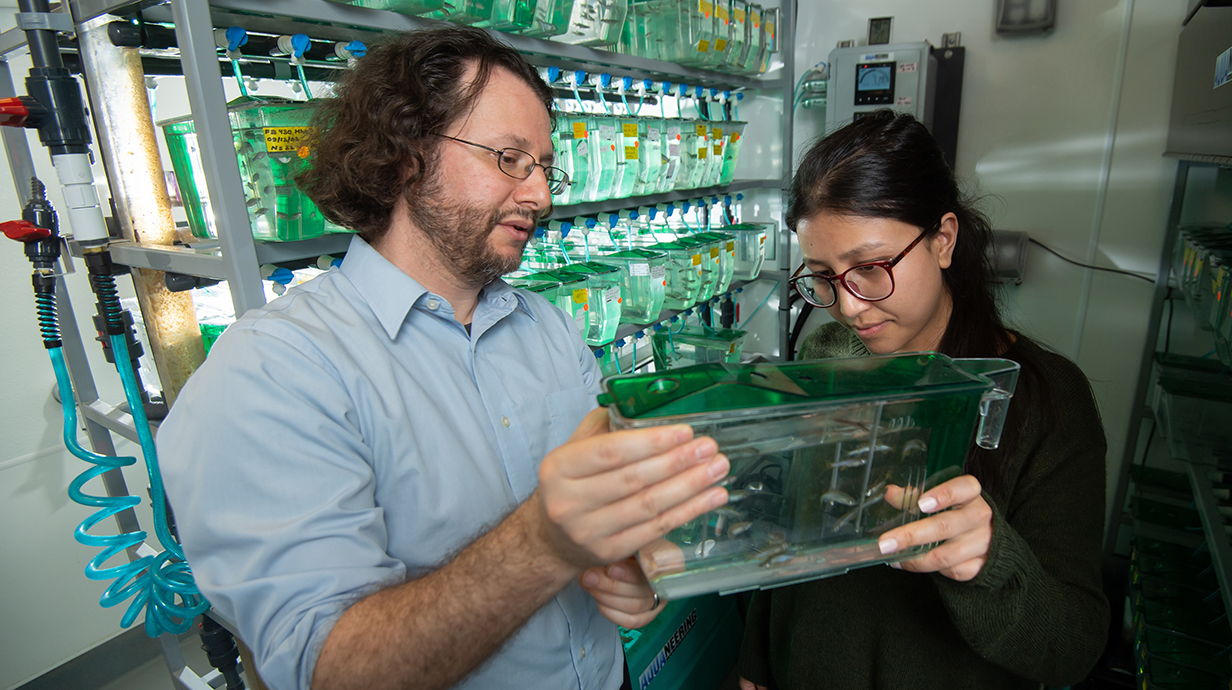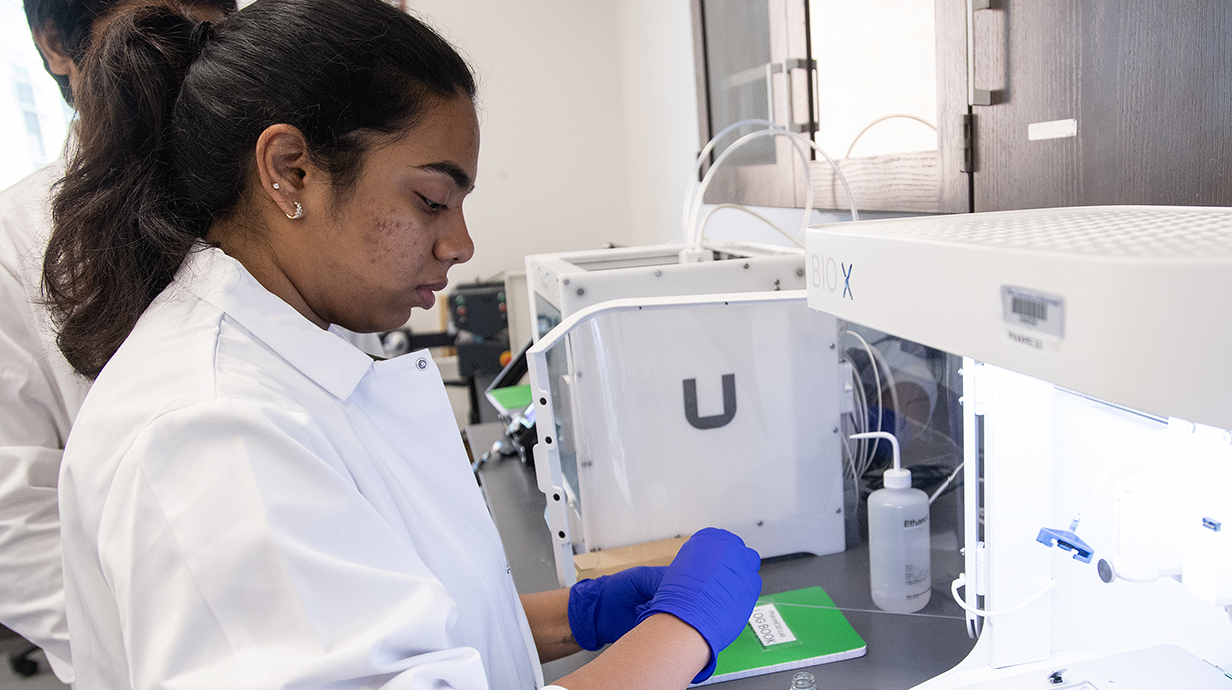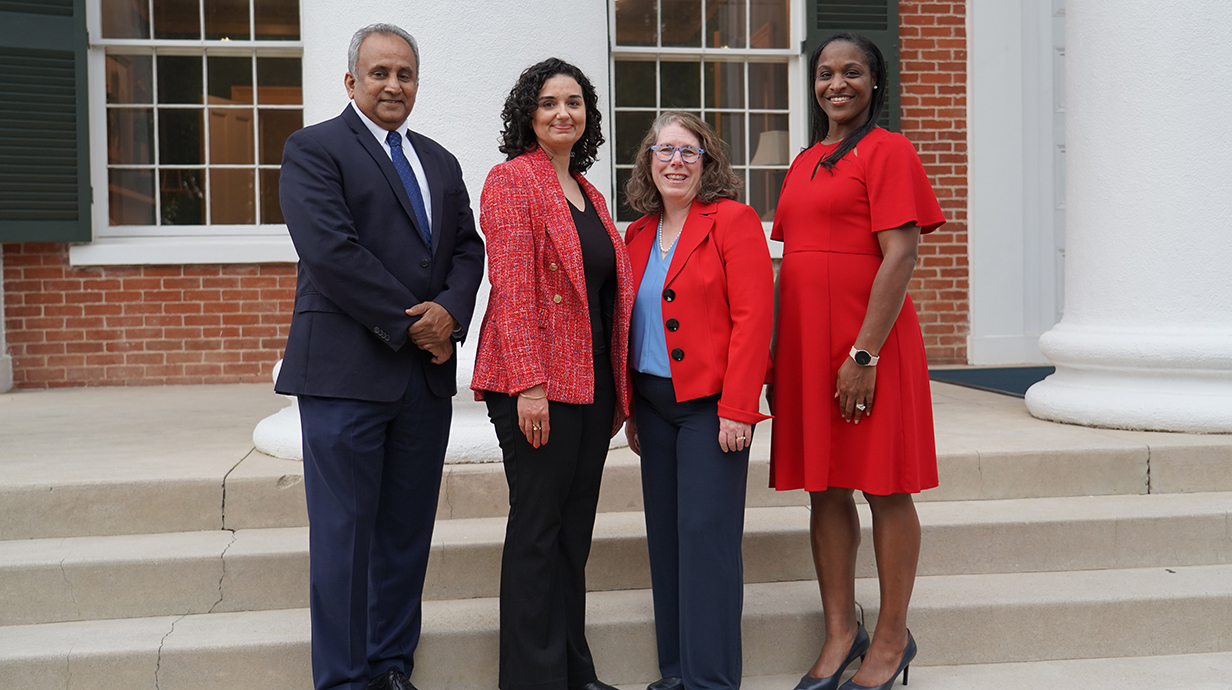University Lands Prestigious T32 Award for Graduate Student Training
School of Pharmacy spearheads effort to secure NIH-funded program

OXFORD, Miss. – In a historic development for the University of Mississippi, the National Institutes of Health has awarded the university a prestigious grant to help support and train graduate students from groups underrepresented in STEM fields.
As part of the T32 Graduate Research Training Initiative for Student Enhancement, or G-RISE, the university will receive $2,146,821 over a five-year period.
"This is historic and transformative," said Melissa King, a member of the pharmacy school team that worked to secure the program for the university. "It's providing students with significant additional financial support and resources to ensure their success in whatever path that may be.
"This helps to ensure that students will thrive while pursuing a doctoral degree."
The funding comes from the NIH's National Institute of General Medical Sciences and will help support three doctoral students per year. Each student will receive support for three years under the university's new Diversifying Interdisciplinary Research Expertise through Community building and Training, or DIRECT, program. King is program manager for DIRECT.

Navya Nalajala, a doctoral student in pharmaceutical sciences, works with a 3D printer in the laboratory of pharmacy professor Mo Maniruzzaman. A new T32 Graduate Research Training Initiative for Student Enhancement award will help the university recruit and train doctoral candidates in STEM fields. Photo by Thomas Graning/Ole Miss Digital Imaging Services
The new program aims to develop scientists with the technical, operational and professional skills required to conduct health-related research in an ethically responsible and rigorous manner. It will also provide students with the knowledge and skills needed to enter careers in the biomedical workforce.
The award signifies multiple achievements, including:
- The first NIH T32 grant for the Oxford campus
- The second T32 grant in the state
- The first NIH T32 G-RISE in the state
- The only pharmacy school in the state to receive the grant.
"I am excited that our institution will have the opportunity to expand the education of needed health-related researchers," said Noel Wilkin, provost and executive vice chancellor for academic affairs. "This program is critical to meet the needs for qualified researchers in key shortage areas.
"I am thankful to the outstanding investigators who have succeeded at bringing this competitive and prestigious grant, and subsequent work, to the university."
A team from the School of Pharmacy spearheaded the effort to secure the award, which will benefit multiple departments on campus, including Pharmacy Administration; Pharmaceutics and Drug Delivery; BioMolecular Sciences; Biology; Chemistry and Biochemistry; Psychology; Public Health; Nutrition and Hospitality Management; and Health, Exercise Science and Recreation Management.
Principal investigators for the project are Soumyajit Majumdar, pharmacy's associate dean for research and graduate programs, Marie Barnard, pharmacy administration professor, and Shawnboda Mead, vice chancellor for diversity and community engagement.

Soumyajit Majumdar (left), Melissa King and Marie Barnard, all from the School of Pharmacy, and Shawnboda Mead, vice chancellor for diversity and community engagement, are part of a team that has secured a prestigious graduate student training award for the university from the National Institutes of Health. Photo by Natalie Ehrhardt/School of Pharmacy
Majumdar, who described DIRECT as a "culture shift," said that under the new program, doctoral students will receive more holistic training than ever. Besides research training, students will also get instruction in scientific communication, professional and career development, and an introduction to the variety of career fields available to someone with a Ph.D.
The program covers tuition for accepted students. It also includes support toward conference travel, professional development, a stipend, health insurance and child care.
"Receiving the T32 is monumental for our graduate programs," said Annette Kluck, dean of the UM Graduate School. "Having the G-RISE program will better our campus and elevate our reputation as a research institution."
The grant is a significant step forward in promoting and broadening pathways to careers in science, technology, engineering and mathematics fields, Barnard said.
"We have phenomenal faculty mentors who can now expand the number of students they can work with, broadening opportunities at the University of Mississippi," she said.
The T32 G-RISE is expected to be a boon to recruitment not only because of the new funding, but also because of the prestige associated with receiving the grant.
"I am so grateful for Dr. Majumdar and team's persistence in pursuing a T32 grant," said Donna Strum, dean of the pharmacy school. "It is a significant milestone in our research journey, providing crucial mentoring and support for the next generation of leaders in biomedical research."
Research reported in this publication was supported by the National Institute of General Medical Sciences of the National Institutes of Health under award no. T32GM144924. This content is solely the responsibility of the authors and does not necessarily represent the official views of the National Institutes of Health.
Top: Biology professor Joshua Bloomekatz (left) and doctoral student Rabina Shrestha examine a tank of zebrafish in Bloomekatz's lab. The university's new T32 Graduate Research Training Initiative for Student Enhancement award is designed to support and train graduate students from groups underrepresented in STEM fields. Photo by Kevin Bain/Ole Miss Digital Imaging Services
By
Natalie Ehrhardt
Campus
Published
June 25, 2024
